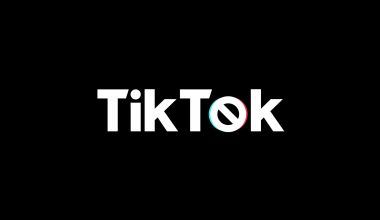If you’re passionate about music and want to turn your talent into a source of income, you’re in the right place. In this blog, we’ll explore 40 ways to earn money as a musician. Whether you’re just starting or looking to expand your income streams, there’s something here for everyone. We’ll cover everything from traditional gigs to modern digital opportunities, ensuring you have a comprehensive guide to making a living from your music.
1. Live Performances
One of the most traditional ways to earn money as a musician is through live performances. Whether you’re playing at local bars, cafes, or large concert venues, live gigs can be a significant source of income. Additionally, live performances help you build a fanbase and gain exposure.
How to Get Started with Live Performances
To start performing live, you need to network with local venues and event organizers. Create a professional EPK (Electronic Press Kit) that includes your music, photos, biography, and contact information. Reach out to venues and showcase your talent. Social media can also be a powerful tool to announce your gigs and attract an audience.
Tips for Success
- Rehearse Regularly: Ensure your performances are polished and professional.
- Engage with the Audience: Interaction can turn attendees into loyal fans.
- Sell Merchandise: Boost your income by selling CDs, T-shirts, and other merchandise at your gigs.
Related Article: 5 Tips for Delivering a Stellar Stage Performance as an Artist
2. Street Performing
Street performing, or busking, is a great way to earn money as a musician and practice your craft. Choose a busy location, get the necessary permits, and start playing. Many successful musicians, like Ed Sheeran, started their careers busking on the streets.
How to Start Busking
First, research the local regulations for street performing. Some cities require permits, while others have specific areas designated for busking. Invest in a portable amplifier and ensure you have a tip jar or hat for collecting donations.
Tips for Success
- Choose the Right Location: High foot-traffic areas are ideal.
- Be Polite and Respectful: Maintain a good relationship with nearby businesses and residents.
- Diversify Your Setlist: Play a mix of popular songs and originals to keep the audience engaged.
3. Teaching Music
If you’re skilled at playing an instrument or have a good understanding of music theory, teaching music can be a lucrative option. You can offer private lessons, group classes, or even online tutorials. Teaching not only provides a steady income but also helps you refine your skills.
How to Start Teaching Music
Determine your area of expertise and the age group you want to teach. Advertise your services through local schools, community centers, and online platforms like TakeLessons and Wyzant. Set competitive rates and create structured lesson plans.
Tips for Success
- Be Patient: Teaching requires patience and adaptability.
- Customize Lessons: Tailor your lessons to meet the individual needs of each student.
- Stay Updated: Continuously improve your teaching methods and stay current with music education trends.
4. Selling Merchandise
Merchandise sales can be a substantial way to generate money as a musician. Items like T-shirts, posters, and albums are popular among fans. Setting up an online store or selling merchandise at gigs can boost your earnings significantly.
How to Sell Merchandise
Create designs that resonate with your fans. Use platforms like Teespring or Printful to produce and sell your merchandise online. At live events, have a well-organized merch table with a variety of items.
Tips for Success
- Quality Matters: Ensure your merchandise is high-quality.
- Offer Limited Editions: Create urgency and exclusivity with limited-edition items.
- Bundle Products: Offer discounts for bundles to increase sales.
5. Streaming Royalties
Streaming platforms like Spotify, Apple Music, and YouTube Music pay royalties to artists for every stream. While the per-stream payout might be small, having your music widely available can add up over time.
How to Earn from Streaming
Distribute your music through platforms like Deliver My Tune, DistroKid, TuneCore, or CD Baby. Promote your music on social media to drive streams. Engage with playlists and collaborate with other artists to expand your reach.
Tips for Success
- Optimize Your Profiles: Ensure your streaming profiles are complete and professional.
- Release Regularly: Consistent releases keep your audience engaged and boost streams.
- Use Analytics: Monitor your streaming data to understand what works and refine your strategy.
Related Article: How Do Artist Make Money from Streaming
6. Selling Music Online
Platforms like Bandcamp and iTunes allow you to sell your music directly to fans and add one more way to make money as an artist. This method can be more profitable than streaming since you keep a larger portion of the sales revenue.
How to Sell Music Online
Upload your music to these platforms and set your pricing. Bandcamp allows fans to pay what they want, which can lead to higher earnings. Promote your music through social media, email newsletters, and your website.
Tips for Success
- Engage with Fans: Offer exclusive content or discounts to your loyal fans.
- Optimize Your Store: Use high-quality images and detailed descriptions.
- Offer Various Formats: Provide options like vinyl, CDs, and digital downloads.
Related Article: 5 SIMPLE STEPS TO SELL MUSIC ONLINE
7. Crowdfunding
Crowdfunding platforms like Kickstarter and Patreon allow you to raise money directly from your fans. You can offer exclusive content, early access to new music, or other perks in exchange for their support.
How to Crowdfund Successfully
Choose the right platform for your needs. Kickstarter is great for one-time projects, while Patreon works well for ongoing support. Create a compelling campaign with clear goals and attractive rewards.
Tips for Success
- Be Transparent: Clearly explain how the funds will be used.
- Engage Regularly: Keep your backers updated on your progress.
- Offer Valuable Rewards: Provide exclusive content and experiences that your fans will love.
8. Sync Licensing
Sync licensing involves getting your music featured in TV shows, movies, commercials, and video games. This can be a highly lucrative income stream if you manage to get your music placed in popular media.
How to Get Into Sync Licensing
Submit your music to sync licensing agencies or music libraries like Musicbed, AudioJungle, and Songtradr. Network with music supervisors and stay updated on the types of music currently in demand.
Tips for Success
- Create High-Quality Tracks: Ensure your recordings are professional and polished.
- Be Versatile: Produce a variety of genres to increase your chances of placements.
- Follow Up: Maintain good relationships with music supervisors and agencies.
Related Article: What is Sync Royalty? A Comprehensive Guide for Musicians
9. Session Musician
As a session musician, you get paid to perform in studio recordings or live performances for other artists. This can be a gre at way to earn money as a musician while gaining exposure and networking with other musicians.
How to Become a Session Musician
Build a portfolio showcasing your skills and experience. Network with local studios and musicians. Websites like SoundBetter can help you find session work online.
Tips for Success
- Be Reliable: Show up on time and prepared for every session.
- Be Versatile: Develop skills in multiple genres and instruments.
- Build Relationships: Strong relationships can lead to more opportunities.
10. Music Production
If you have skills in music production, you can offer your services to other musicians. Producing tracks, mixing, and mastering can be a significant income source, especially if you build a reputation for quality work.
How to Start Offering Production Services
Create a portfolio of your work and set up a professional website. Use social media and networking events to promote your services. Consider offering free or discounted rates to build your client base initially.
Tips for Success
- Invest in Equipment: High-quality equipment can improve your production quality.
- Stay Updated: Keep up with the latest production trends and software.
- Offer Packages: Create packages that include recording, mixing, and mastering services.
11. Songwriting
Writing songs for other artists or for commercial use can be very profitable. Many successful songwriters earn royalties whenever their songs are played or performed.
How to Get Started in Songwriting
Join songwriting organizations like ASCAP or BMI. Network with artists, producers, and music publishers. Submit your songs to contests and pitch them to music libraries.
Tips for Success
- Write Regularly: The more you write, the better you get.
- Collaborate: Co-writing with other songwriters can open new opportunities.
- Protect Your Work: Ensure your songs are copyrighted to protect your rights.
Related Article: How to Write a Song: A Comprehensive Guide for Aspiring Songwriters
12. Music Licensing
Similar to sync licensing, music licensing involves licensing your music for use in various media. Websites like Musicbed and AudioJungle are great platforms to start licensing your music.
How to License Your Music
Upload your music to licensing platforms and set your pricing. Promote your music to potential clients and stay updated on licensing trends.
Tips for Success
- Create Diverse Tracks: Offer a variety of styles to attract more clients.
- Optimize Your Listings: Use detailed descriptions and tags to make your music easy to find.
- Follow Up: Maintain good relationships with clients for repeat business.
13. Cover Bands
Playing in a cover band can be a steady source of income. Many venues and private events prefer cover bands that play popular hits, ensuring a great atmosphere and satisfied audience.
How to Start a Cover Band
Choose a genre or theme for your band and create a setlist of popular songs. Promote your band through social media, local advertisements, and networking with event planners and venues. Ensure you have a professional demo reel and promotional materials to showcase your band’s talent.
Tips for Success
- Stay True to the Originals: Audiences often prefer covers that closely resemble the original songs.
- Engage with the Audience: Interaction can make your performances more memorable.
- Update Your Setlist: Regularly refresh your setlist with new hits to keep your act current.
14. Wedding and Event Musician
Playing at weddings and private events can be very lucrative. These gigs often pay well and can lead to referrals and repeat bookings. This can be great way to make money as a musician.
How to Become a Wedding/Event Musician
Create a repertoire of romantic and popular songs suitable for weddings and events. Network with wedding planners, venues, and other vendors. Build a professional website with testimonials, sample tracks, and videos.
Tips for Success
- Be Professional: Punctuality and professionalism are key to getting referrals.
- Offer Customization: Be willing to learn and perform special requests for clients.
- Provide a Contract: Use contracts to clearly outline your services and payment terms.
15. YouTube Channel
Creating a YouTube channel to share your music, tutorials, or vlogs can generate income through ad revenue, sponsorships, and fan donations.
How to Start a YouTube Channel
Choose a niche for your channel, such as music covers, original songs, or instructional videos. Invest in good quality video and audio equipment. Consistently upload content and engage with your audience through comments and social media.
Tips for Success
- Optimize for SEO: Use relevant keywords in your titles, descriptions, and tags.
- Collaborate: Partner with other YouTubers to grow your audience.
- Monetize: Enable ads, seek sponsorships, and promote merchandise to generate income.
Related Article: YouTube Marketing Strategy for Musicians
16. Podcasting
Starting a music-related podcast can be a unique way to earn money as a musician. You can monetize through sponsorships, ads, and listener donations.
How to Start a Podcast
Choose a theme for your podcast, such as music history, artist interviews, or industry news. Invest in quality recording equipment and editing software. Submit your podcast to platforms like Apple Podcasts and Spotify.
Tips for Success
- Consistency: Release episodes on a regular schedule.
- Engage with Listeners: Encourage listener interaction through social media and email.
- Seek Sponsors: Approach companies that align with your podcast’s theme for sponsorship deals.
Related Article: Your Musician Guide for Podcasting
17. Corporate Gigs
Corporate events often pay well for live music. Networking with event planners and businesses can open doors to these high-paying opportunities.
How to Get Corporate Gigs
Create a polished demo reel and promotional package. Network with corporate event planners and attend industry events. Offer a professional and versatile setlist suitable for corporate audiences.
Tips for Success
- Be Versatile: Be prepared to adapt your performance to suit different corporate environments.
- Professionalism is Key: Maintain a high level of professionalism in all dealings.
- Follow Up: Send thank-you notes and follow up for feedback to build lasting relationships.
18. Music Therapy
Music therapy involves using music to help people improve their mental health and well-being. You can work in hospitals, schools, or private practice as a certified music therapist. And, add one more way to earn money as musician.
How to Become a Music Therapist
Obtain a degree in music therapy from an accredited institution. Complete the required clinical hours and obtain certification from a recognized body like the American Music Therapy Association.
Tips for Success
- Empathy and Patience: Essential traits for working effectively with clients.
- Continued Education: Stay updated with the latest research and techniques in music therapy.
- Build a Network: Collaborate with other healthcare professionals to expand your opportunities.
Related Article: The Impact of Music on Human Life
19. Composing for Film and TV
Composing original scores for films, TV shows, and documentaries can be highly rewarding. This requires strong compositional skills and the ability to work under tight deadlines.
How to Start Composing for Film and TV
Build a portfolio of your compositions and create a showreel. Network with filmmakers, producers, and other industry professionals. Submit your work to film festivals and online platforms like Soundtrack.net.
Tips for Success
- Understand the Industry: Learn about the different types of licensing and rights involved.
- Be Flexible: Be open to feedback and willing to make changes to meet the director’s vision.
- Build Relationships: Strong relationships can lead to repeat business and referrals.
20. Sound Design
Sound designers create audio for video games, apps, and interactive media. This is a specialized field that combines creativity with technical skills.
How to Become a Sound Designer
Study sound design and audio engineering. Build a portfolio of your work and showcase it on platforms like SoundCloud or YouTube. Network with developers and studios.
Tips for Success
- Learn the Tools: Master the software and equipment used in sound design.
- Stay Creative: Always look for new and innovative ways to create sound effects.
- Be Detail-Oriented: Attention to detail is crucial in creating high-quality sound design.
21. Live Streaming Performances
Platforms like Twitch and Facebook Live allow you to stream live performances and earn money through donations and subscriptions from viewers.
How to Start Live Streaming
Set up a professional streaming setup with good audio and video quality. Promote your streams on social media and interact with viewers during your performance. Platforms like Streamlabs can help manage donations and subscriptions.
Tips for Success
- Engage with Your Audience: Interaction is key to building a loyal following.
- Regular Schedule: Stream regularly to keep your audience engaged.
- Promote Your Streams: Use social media and other channels to promote your live streams.
22. Selling Beats and Instrumentals
If you produce beats or instrumentals, selling them to other artists can be a profitable venture. Websites like BeatStars and Airbit are popular marketplaces for this purpose.
How to Sell Beats and Instrumentals
Create high-quality beats and upload them to marketplaces. Set competitive prices and offer exclusive and non-exclusive licenses. Promote your beats through social media and collaborations with artists.
Tips for Success
- Quality Over Quantity: Focus on producing high-quality beats.
- Market Yourself: Build a strong online presence and brand.
- Protect Your Work: Ensure your beats are properly tagged and copyrighted.
23. Creating Sample Packs
Producing and selling sample packs and sound libraries can be a good income source. Producers and composers often buy these packs to use in their projects.
How to Create and Sell Sample Packs
Create high-quality samples and organize them into packs. Use platforms like Splice or Loopmasters to sell your packs. Promote your packs through social media and your website.
Tips for Success
- High-Quality Samples: Ensure your samples are of professional quality.
- Variety is Key: Offer a variety of sounds and genres to attract more buyers.
- Effective Marketing: Use social media and email marketing to reach potential customers.
24. Music Publishing
Music publishers help artists manage their royalties and licensing opportunities. Working with a publisher can open up additional revenue streams for your music.
How to Work with a Music Publisher
Submit your music to publishing companies or work with an independent music publisher. Negotiate a fair contract that outlines your rights and royalties.
Tips for Success
- Understand the Terms: Make sure you understand the terms of your publishing contract.
- Regular Communication: Maintain regular communication with your publisher.
- Monitor Your Royalties: Keep track of your royalties to ensure you are getting paid correctly.
25. Voice Acting
Voice acting for commercials, animations, and video games can be a great way to earn money as a musician. This can complement your musical career, especially if you have a versatile voice.
How to Get Started in Voice Acting
Take voice acting classes and build a demo reel. Join platforms like Voices.com to find voice acting gigs. Network with producers and directors in the industry.
Tips for Success
- Vocal Training: Continuously work on improving your vocal skills.
- Diverse Portfolio: Showcase your ability to perform different styles and characters.
- Professional Equipment: Invest in a good microphone and recording setup.
26. DJing
DJing at clubs, parties, and events can be both fun and profitable. It also provides exposure and networking opportunities within the music scene.
How to Become a DJ
Learn the basics of DJing and practice mixing tracks. Create a mix tape or demo reel and promote it through social media and local events. Network with club owners and event organizers.
Tips for Success
- Know Your Audience: Tailor your setlist to suit the event and audience.
- Stay Current: Keep up with the latest music trends and updates.
- Engage the Crowd: Interaction can enhance the audience’s experience.
27. Music Transcription
Transcribing music for sheet music publications, academic purposes, or other musicians can be a steady source of income if you have strong notation skills.
How to Start Music Transcription
Build your transcription skills and create a portfolio of your work. Offer your services to music publishers, schools, and other musicians. Promote your services online through a professional website.
Tips for Success
- Accuracy is Key: Ensure your transcriptions are accurate and professionally notated.
- Offer Various Services: Provide transcription services for different instruments and genres.
- Timely Deliveries: Ensure you meet deadlines consistently to build a good reputation.
28. Crowdsourced Music Projects
Participating in crowdsourced music projects allows you to collaborate with other musicians and get paid for your contributions. These projects can vary from charity albums to collaborative tracks.
How to Get Involved in Crowdsourced Projects
Join platforms like Kompoz, BandLab, or SoundBetter where musicians post collaborative opportunities. Participate in music forums and social media groups where such projects are often discussed.
Tips for Success
- Network Actively: Engage with other musicians and project initiators.
- Showcase Your Versatility: The more styles you can perform, the more opportunities you’ll have.
- Be Reliable: Deliver high-quality contributions on time.
29. Offering Masterclasses and Workshops
If you’re an expert in a particular aspect of music, offering masterclasses and workshops can be a great way to share your knowledge and earn money as a musician.
How to Organize Masterclasses and Workshops
Identify your area of expertise and create a structured curriculum. Partner with music schools, community centers, or online platforms like Skillshare and Udemy. Promote your classes through social media and music communities.
Tips for Success
- Engage Participants: Make your sessions interactive and engaging.
- Provide Valuable Content: Ensure your content is rich with actionable insights.
- Gather Feedback: Collect feedback to improve future sessions.
30. Creating a Music Blog
Starting a music blog can generate income through ads, sponsorships, and affiliate marketing. You can share your insights, reviews, and tutorials with a broad audience.
How to Start a Music Blog
Choose a niche within the music industry that you’re passionate about. Set up a website using platforms like WordPress or Wix. Consistently produce high-quality content and promote your blog through social media and SEO techniques.
Tips for Success
- SEO Optimization: Use relevant keywords to attract organic traffic.
- Engage with Readers: Respond to comments and engage with your audience.
- Monetize: Use Google AdSense, affiliate marketing, and sponsored posts to generate income.
Related Article: Blogging for Musicians: Why Is It Important
31. Social Media Influencing
Building a strong social media presence can attract sponsorships and brand deals. Sharing your music journey and engaging with fans can lead to monetization opportunities.
How to Become a Social Media Influencer
Choose your primary social media platforms and create a consistent posting schedule. Share a mix of content, including music, behind-the-scenes, and personal stories. Engage with your followers regularly.
Tips for Success
- Consistency: Post regularly and maintain a consistent brand image.
- Authenticity: Be genuine in your interactions to build trust with your audience.
- Collaborate: Partner with other influencers and brands to expand your reach.
32. Music Competitions
Entering music competitions can provide cash prizes and exposure. Many competitions also offer networking opportunities and industry recognition.
How to Find Music Competitions
Search online for local, national, and international music competitions. Websites like Sonicbids and Musicpage list various opportunities. Follow industry news and social media for announcements.
Tips for Success
- Prepare Thoroughly: Practice extensively and ensure your performance is polished.
- Understand the Rules: Follow the competition guidelines carefully.
- Network: Use the competition as an opportunity to network with other musicians and industry professionals.
33. Music Journalism
Writing for music magazines, blogs, or newspapers can be a good side income. Your insights and reviews can help build your reputation in the industry.
How to Start in Music Journalism
Write sample articles and reviews to build a portfolio. Submit your work to music publications, both online and print. Use freelance platforms like Upwork and Fiverr to find writing gigs.
Tips for Success
- Stay Informed: Keep up with the latest music trends and news.
- Be Objective: Provide honest and balanced reviews.
- Build Relationships: Network with editors and other journalists.
34. Crowdsource Funded Albums
Platforms like PledgeMusic allow you to fund your album through fan contributions. This method not only raises money but also engages your fanbase.
How to Start a Crowdfunded Album
Create a compelling campaign with clear goals and attractive rewards. Use video and detailed descriptions to explain your project. Promote your campaign through social media, email newsletters, and your website.
Tips for Success
- Be Transparent: Clearly explain how the funds will be used.
- Engage Regularly: Keep your backers updated on your progress.
- Offer Valuable Rewards: Provide exclusive content and experiences that your fans will love.
35. Collaborations and Features
Collaborating with other artists can expand your audience and bring in additional income. Features on tracks can also lead to royalties and new opportunities.
How to Find Collaboration Opportunities
Network with other musicians through social media, music forums, and industry events. Use platforms like SoundBetter and Kompoz to find collaboration opportunities.
Tips for Success
- Be Open-Minded: Collaborate with artists from different genres to reach new audiences.
- Promote Collaborations: Actively promote your collaborative projects on all your platforms.
- Share Credits: Ensure proper credit is given to all collaborators.
36. Creating Music Apps
If you have coding skills, developing music-related apps can be profitable. Apps for music learning, creation, or entertainment have a broad market.
How to Develop a Music App
Identify a gap in the market and design an app that fills that need. Learn app development or partner with a developer. Launch your app on platforms like the Apple App Store and Google Play Store.
Tips for Success
- User-Friendly Design: Ensure your app is intuitive and easy to use.
- Regular Updates: Keep your app updated with new features and improvements.
- Market Your App: Use social media, app store optimization, and partnerships to promote your app.
37. Custom Songs
Writing and performing custom songs for weddings, birthdays, and other special occasions can be a unique way to earn money and connect with fans on a personal level.
How to Offer Custom Song Services
Create a portfolio of custom songs you’ve written. Set up a website or use platforms like Songfinch to offer your services. Promote your service through social media and word-of-mouth.
Tips for Success
- Understand the Client’s Needs: Tailor each song to the client’s specifications.
- Provide Samples: Offer sample songs to showcase your talent.
- Deliver on Time: Ensure timely delivery to maintain client satisfaction.
38. Music Licensing Libraries
Submitting your music to licensing libraries increases the chances of your music being used in various media, leading to consistent royalty payments.
How to Get Your Music in Licensing Libraries
Research and submit your music to reputable licensing libraries like Pond5, AudioJungle, and Musicbed. Ensure your tracks are professionally produced and meet the library’s requirements.
Tips for Success
- Diverse Portfolio: Offer a variety of genres and styles to increase your chances of selection.
- Quality is Key: Ensure your tracks are high-quality and professionally mixed.
- Stay Updated: Keep an eye on trends and update your portfolio accordingly.
39. Freelance Musician
Offering your skills as a freelance musician for recording sessions, live performances, and other projects can provide a flexible and varied income.
How to Become a Freelance Musician
Create a professional portfolio showcasing your skills and experience. Use platforms like Fiverr, Upwork, and SoundBetter to find gigs. Network with local studios and musicians.
Tips for Success
- Be Professional: Maintain a high level of professionalism in all interactions.
- Diversify Your Skills: The more instruments and styles you can play, the more opportunities you’ll have.
- Build a Network: Strong relationships can lead to repeat business and referrals.
40. Investing in Your Music Career
Sometimes, the best way to earn money is by investing in your career. Whether it’s purchasing better equipment, hiring a manager, or taking courses to improve your skills, investing in yourself can pay off in the long run.
How to Invest in Your Music Career
Identify areas where you need improvement or support. Allocate a budget for purchasing equipment, professional development, and marketing. Seek advice from industry professionals to make informed decisions.
Tips for Success
- Prioritize Investments: Focus on investments that will provide the greatest return.
- Seek Professional Guidance: Consult with managers, producers, and other industry professionals.
- Stay Committed: Consistent investment in your career will yield long-term benefits.
FAQs
Q1: How can I start earn money as a musician with no initial investment?
Starting with platforms that require minimal investment, such as busking, live streaming, and using free social media channels to promote your music can be effective. You can also offer services like teaching music or freelance gigs that require little to no initial investment.
Q2: What are the most lucrative ways to earn money as a musician?
The most lucrative methods often include live performances, sync licensing, music production, and corporate gigs. Diversifying your income streams, such as teaching, selling merchandise, and online streaming, can also significantly boost your earnings.
Q3: How important is networking in the music industry?
Networking is crucial in the music industry. Building relationships with other musicians, industry professionals, and fans can open up opportunities for gigs, collaborations, and other income-generating avenues. Attend industry events, join music communities, and engage actively on social media to expand your network.
Q4: How can I promote my music effectively to increase my income?
Effective promotion involves a combination of online and offline strategies. Use social media platforms to engage with your audience, create a professional website, distribute your music on streaming platforms, and collaborate with other artists. Consistent branding and regular content updates also help in maintaining visibility.
Q5: What should I include in my Electronic Press Kit (EPK)?
An EPK should include a professional biography, high-quality photos, music samples, videos of live performances, press coverage, contact information, and links to your social media and streaming profiles. A well-organized EPK helps in securing gigs and media coverage.
Q6: How do I get started with sync licensing?
Start by creating a portfolio of high-quality tracks suitable for various media. Submit your music to sync licensing agencies and music libraries like Musicbed, AudioJungle, and Songtradr. Networking with music supervisors and staying updated on industry trends also helps in securing sync deals.
Q7: How can I maximize my earnings from streaming platforms?
To maximize your earnings, ensure your music is available on all major streaming platforms. Optimize your artist profiles, engage with your audience through social media, and regularly release new music. Collaborate with other artists and get your music featured on popular playlists.
Q8: Is it necessary to have a manager as an independent musician?
While having a manager can significantly help in handling the business aspects of your career, it’s not necessary for everyone. Many independent musicians successfully manage their own careers by staying organized, networking effectively, and utilizing available resources and tools.
Q9: How do I balance creating music with managing my business activities?
Time management is key. Set specific goals and allocate dedicated time for both creative and business activities. Consider outsourcing tasks like marketing, accounting, and administrative work if possible. Tools like project management software can help keep track of your tasks.
Q10: What are some common mistakes to avoid when trying to earn money as a musician?
Common mistakes include neglecting the business side of music, not protecting your work legally, poor time management, and failing to network effectively. It’s also important to continuously improve your craft and adapt to industry changes.
Conclusion
Earning money as a musician involves a combination of talent, strategy, and hard work. By diversifying your income streams and continuously improving your craft, you can build a sustainable and fulfilling career in music. Remember to stay adaptable and open to new opportunities, as the music industry is constantly evolving.
This comprehensive guide aims to provide you with practical and actionable ways to earn money as a musician. Start exploring these opportunities today, and you’ll be on your way to a successful music career.
For further reading, explore these related articles:
- What is YouTube Content ID?
- Deliver My Tune’s Exciting New Services!
- Know the Ways to Get the Music Sync Licensing
- What is Performance Royalty?
For additional resources on music marketing and distribution, visit Deliver My Tune.






